The Revolution Will Not be Doomscrolled
Friendship was killed on purpose. Friendship is what will save us. Care is The Rebellion.
More from f*ck i love you
the fily (audio)files audio essays
f*ck i loved that the pod This week’s post started as a note that felt like it needed to grow. May you find your Rebellion of Care1.
Friendship is what will save us
so fall deeply in love with your friends
date them, woo them, pursue them
mark your anniversaries
celebrate their victories
take care of their names
when they're not in the room
create a space for them
where all truths are tender
for intimacy doesn't have to be
reserved for romance
and crushes do not belong
only to lovers
so don't hide it
when you find
a bonafide ride-or-die.
David Gate, A Rebellion of CareHyper Connected, Chronically Alone
recently hosted an ‘Offline’ no-phones party in Manhattan that drew 700 people. Meta, the company that sells us connection, Andrew tells us, admits the average American has only three friends but wants fifteen. There is a massive, unmet hunger for community and activity that translates out into the real world, and it has very little to do with “politics”.
Reading
‘s Why I Stopped Going on TV just before Andrew’s piece reminded me of a belief I’ve long held: what we need now isn't more data or dogma, it's more IRL dopamine and distraction from our destruction.By that I mean we need non-performative, non-extractive, third spaces where people can just be together. I’d say we progressives need to drop the “politics” altogether.
That can come after we reconnect to ourselves and each other.
As Grace says, you’re more likely to go to a protest because your neighbour asked you than because you saw a debate on TV. But that also assumes you know your neighbour and have the time, energy and willingness to talk to them — most of us don’t.




Back In My Day ✨
Once upon a time, I was part of a progressive community in Vancouver that organized itself largely through parties and socials and potlucks (p.s.: for god’s sake please stop bringing hummus to potlucks).
For a few years, we had a sort of community Christmas party where all the social-change-y orgs got together for one big banger of a celebration instead of host a bunch of little stuffy one-offs no one actually wanted to be at. It was called The Sparkle Party, and it was highlight of our community’s social calendar — or at least it was the highlight of my social calendar. I was a big fan of that party.
Once a year for five years, hundreds of very serious progressives by day would turn up in their festive best, let their hair down and get sweaty together on the dance floor. Or in the sauna bus out back. Or both.
Much of that creative convening genius came from artists and community organizers in disguise like
and her brilliant business partner . They dreamed up The Sparkle Party a few years before co-founding the Vancouver Mural Festival (VMF).Not coincidentally, very much on purpose, their company was called Transformation Projects. They believed — and demonstrated over and over again — that transformative social experiences were how you could transform society for the greater good.



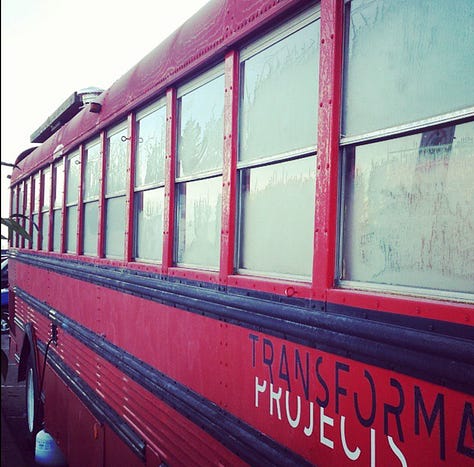
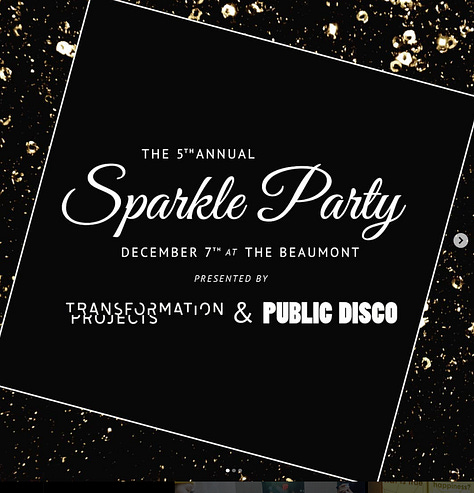

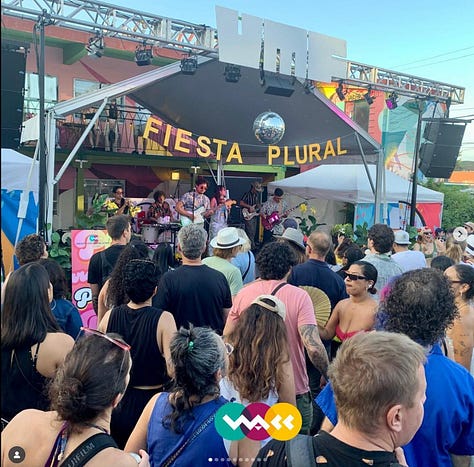


Finally, A Murder Millennials Did Not Commit
Of all the things Transformation Projects did, VMF perhaps was the most subversive, a political movement the city never knew was a movement: Where the public saw a street festival, the organizers were getting artists paid what they’re worth, transforming the city’s visual landscape, and centering Indigenous art and culture in ‘the good way’, not the performative way.
But somewhere along the way, we lost all that. The Sparkle Party stopped happening, the COVID austerity fires burnt through the social sector, and like many arts and culture organizations of the era, VMF was forced to shutter due to funding issues.
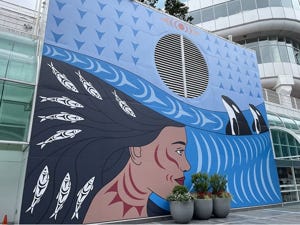
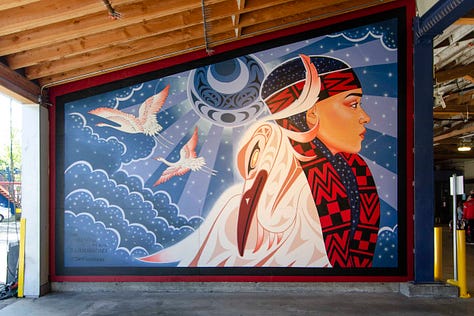

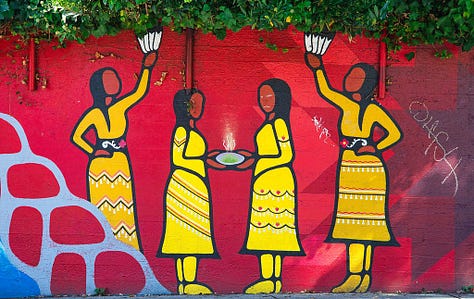
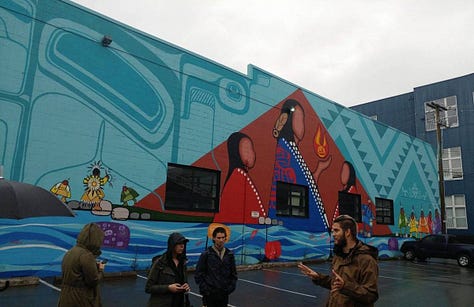

Our once-vibrant “community” is now past tense, fractured and fragmented, trying to survive a cost of living crisis, parenting, elder care and the general assault that is life today. Our community’s story was also not unique. COVID just accelerated social decay that had long been brewing.
It’s also no coincidence that this happened in parallel with the enshittification of online “organizing” spaces like Facebook and the sort of widespread death of friendship most of us are barely coping with.
And Meta knows we are left in the wreckage of these losses, desperate for friends, because Meta killed friendship.
And friendship needed to die because friendship means connection and connection means community, and communities can become movements.
And movements do things like get socialists elected to office.
Capitalism Came for Community
Herein is the central problem: Capitalism came for community. The Global Wellness Institute declared the ‘wellness industry is coming for the loneliness epidemic’ in 2023, just a year after McKinsey told us told us community was the only way to build a brand.
‘Brand communities’ are just capitalism’s way of trying to sell us the cure for the ache it caused though.
Because this is all transactional culture knows how to do: take.
Per usual.
Per the last email.
Just as the food industry left us nutritionally impoverished with their food-like products, the community industry has left us socially impoverished with their connection-like products.
But this is also why we shouldn't turn our noses up at "market signals." To ignore that people are so desperate for connection they're willing to pay for it is as delusional as believing repatriating domestic manufacturing will Make America Great Again.
We have to see the hunger for what it is.


Magic Numbers Do Exist
How can you ask someone to save a thing when they feel like they are the thing in need of saving?
We are stretched too thin, breaking, and numb.
A big reason for that is we live in the age of exponential digital scale. Human brains were not built to understand numbers like a million let alone a billion though. Certainly not in financial terms but least of all in social terms.
There’s this thing I’ve been thinking about a lot lately called Dunbar’s number—the idea that our brains have a cognitive upper limit on how many relationships we can actually tend to at one time. That number is ~150.
When a single person’s relational web extends past 150, we typically introduce complexity to maintain what our brains cannot: hierarchies, rules, regulations and bureaucracies serve as prosthetic trust and structure.
Our current social, organizational, and digital design is completely antithetical to that human scale. It’s a recipe for the widespread cognitive overload we’re all drowning in. We are literally shorting our circuits. Or, as the BBC explained it:
Exceed 150, and a network is unlikely to last long or cohere well.
150 alone doesn’t tell the whole story. Other numbers are nested within the social brain hypothesis too.
According to the theory, the tightest circle has just five people – loved ones. That’s followed by successive layers of 15 (good friends), 50 (friends), 150 (meaningful contacts), 500 (acquaintances) and 1500 (people you can recognise). People migrate in and out of these layers, but the idea is that space has to be carved out for any new entrants.
And so here is one of the key ways ‘Meta killed friendship’. It made us believe it is possible to maintain thousands of ‘friendships’ online. That quality could be replaced with quantity. That geography and place no longer matter — along with kindness and basic decency in our interactions, that it is ok to say something in a comment section you’d never say to someone’s face. It normalized a sort of paralyzing parasocial digital experience that leaves us ‘hyper connected and chronically alone’, capable perhaps of recognizing hundreds of ‘online friends’ without five close loved ones in real life, let alone the 15 our brain could reasonably tend — and Meta’s own data says we want.
A major consequence of burning ourselves out cognitively like this is we have no energy left for tending the relationships we say we want but don’t have. And the bureaucracies we’ve built to try to enable ‘trust at scale’ are more like a noose around our necks.
We’re trying to do too much with too few resources, too fast, with too many and too few people at once. It’s breaking our ability to stay connected where it matters most.
Then there’s the bigger problem all this has created, also at scale: our collective human-ing skills are pretty shit right now because we're out of practice with other real humans in real life.
And we're out of practice because we have too few places and too few people to practice with.
A Rebellion of Care
So what do we do? First, put the clipboards down. Stop reciting the statistics. Definitely stop the debates.
We already know how bad it all is deep in our too-tired bones. Our lives are more compelling evidence than data could ever be.
We just don’t know each other anymore. But we’re more than ready.
So my suggestion is this: Pass the mic to the artists and the hosts-with-the-most, the social butterflies and the introverts, the dreamers and the convenors—anybody and everybody who has ever created an experience you actually wanted to be at.
Or maybe don’t pass anything.
Maybe just rest.
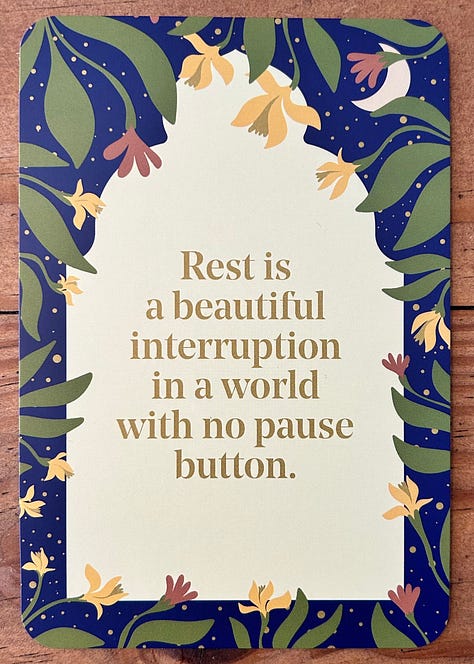
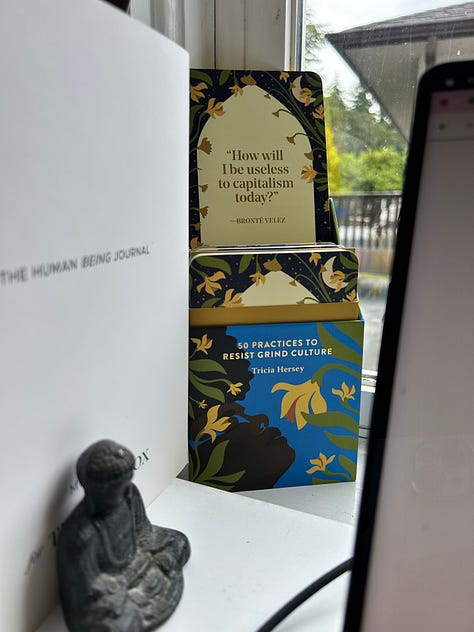
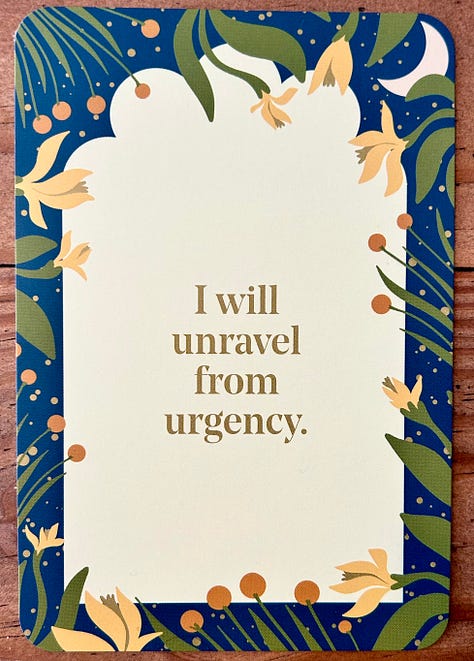
And if you’re skeptical that rest matters, or that it could in fact also be part of a resistance movement, check out last week’s podcast post where you’ll learn about the youth-led ‘lying flat’ (躺平) and ‘let it rot’ (摆烂) movements in China, which are so effective they’re seen as a threat to the country's economic ambitions. That means it’s working.
This is why Offline Clubs and recurring ‘friendship’ events like We Should Be Friends Vancouver are going viral globally.
They're basically a portal to a simpler time.
A form of reconnection; of collective rest.
They are
.Phones get traded in for books, knitting needles, and cozy nooks for intimate quiet chats.
That’s it.
That’s all we really want.
To connect.
It’s not complex. It’s not even complicated. It’s actually pretty damn simple.
Strategists and consultants are not required to recognize that we want to stop performing human doing and be human beings together again.
It might be time that we “progressives” pause to consider that this is what organizing might look like now, too.
Because I’m pretty sure the future belongs to those who get that; to those who help us reconnect to each other and ourselves.








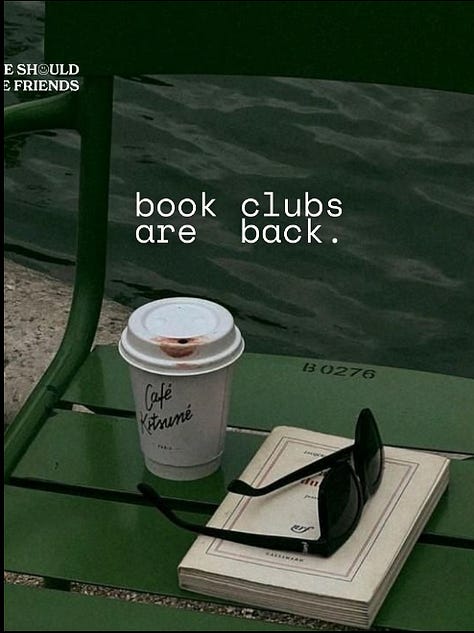
***
If this piece lit up your brain and heart at the same time, sharing, liking, commenting or subscribing is Creator Speak for “fuck i love you, too”.
And let’s be honest this is still capitalism and this economy is shit (again) so I don’t use paywalls. If you’re in a good position and excited to
make a one-time or monthly contribution,
I’d be super grateful.
I’ll still fucking love you either way.
***

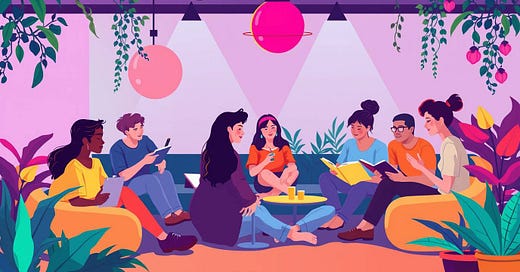



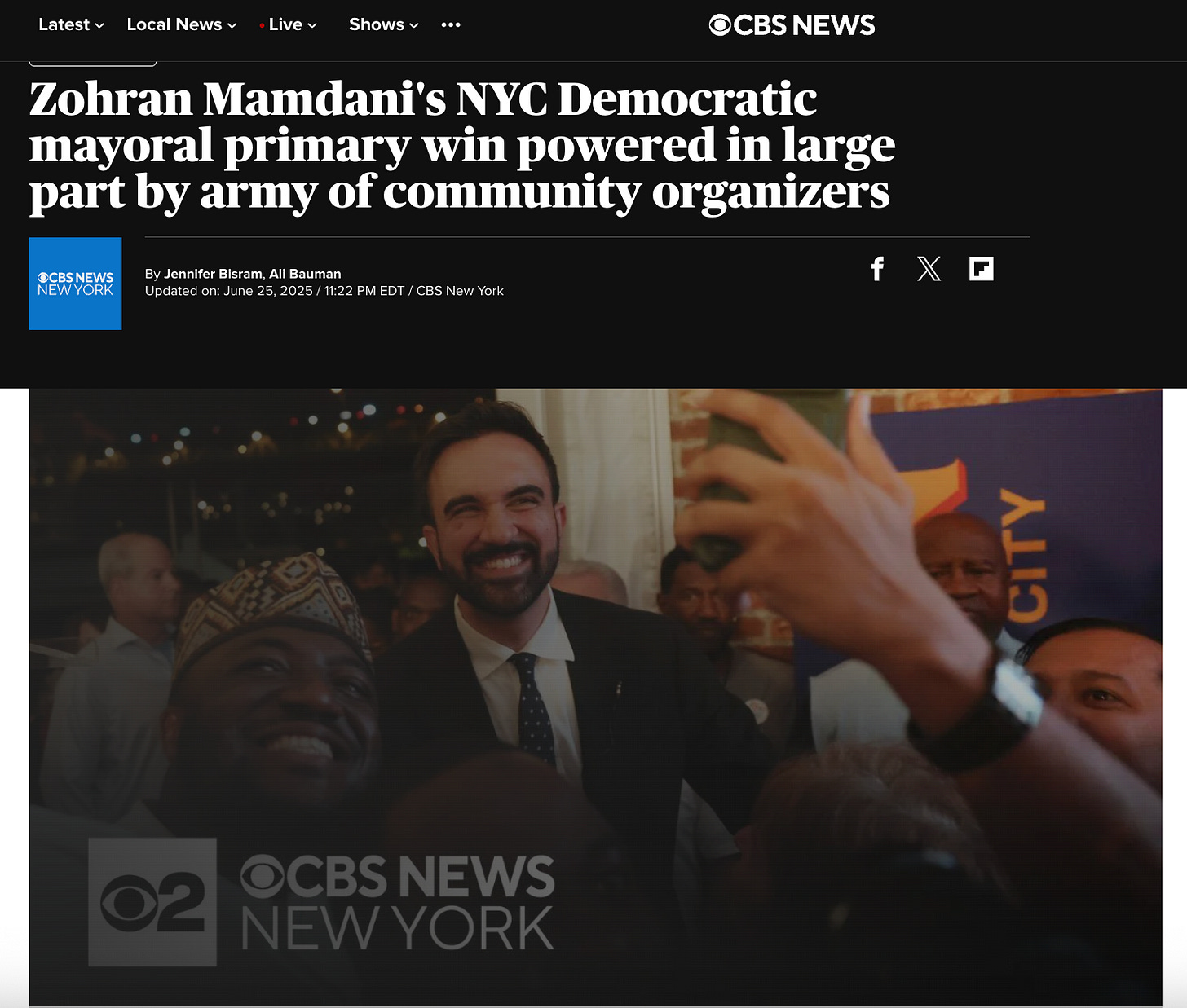

Man get out of my head. Facebook created these cardboard cutouts of friendship that have posed as connection for years, generations at this point. It’s no wonder the younger among us don’t know how to interact without a heaping helping of awkward if they think connection comes defined by an algorithm instead of eye contact. Reading the list of events at the end of your post makes me think boredom might be getting cool. Fingers crossed for all us nerds.
Also, Vancouver is cool as shit. Canada is in general. Macleans did a cool article about the garrison mentality in Canadian fiction and how Canadians are just more naturally interested in community as a result of the colder climate. I’m a citizen and think about going back all the time, especially lately.
Yes please. ✨💛🙌🏼